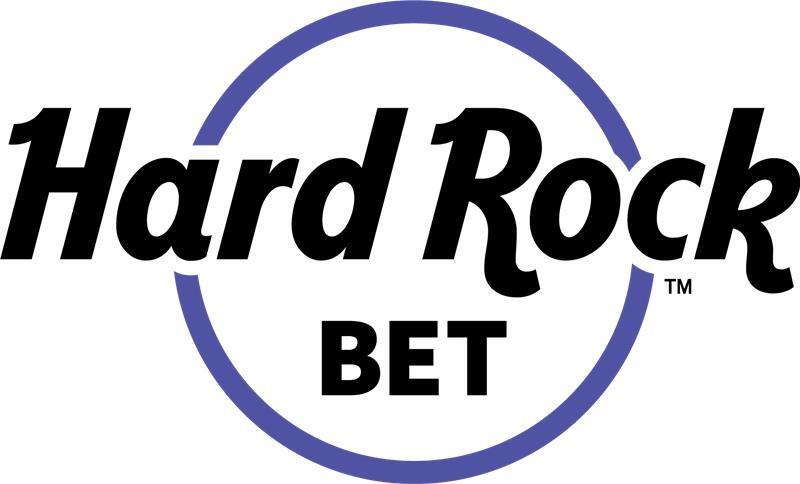Responsible Gaming
Online gambling can provide entertainment and excitement when approached with the right mindset. However, maintaining control and awareness is essential to ensure gaming…
Category Ratings
At our platform, we believe gambling should add enjoyment to your life without compromising your financial security or personal relationships. Whether you play occasionally or regularly, practicing responsible gaming habits helps ensure the experience stays fun and sustainable.
This guide offers practical advice, warning signs to watch for, and connections to trusted support resources across the United States. If gambling ever becomes a concern for you or someone you care about, remember that help is readily available.

Understanding Responsible Gaming
Responsible gaming means participating in gambling activities while maintaining full control over your time and money. It’s about making informed decisions, keeping proper perspective, and taking action when needed.
Key principles include:
- Establishing firm boundaries on both time and money spent gambling
- Understanding the odds and accepting that losses are part of gambling
- Recognizing warning signs of problem gambling in yourself and others
- Accessing support resources when gambling negatively impacts your life
Practicing responsible gaming protects both your wellbeing and that of your loved ones. Seeking help when needed demonstrates strength and self-awareness.
Essential Tips for Safe Gambling
Create a Budget and Stick to It
Determine your gambling budget before you start playing. This amount should be money you can afford to lose without affecting your ability to pay for necessities like housing, food, transportation, or healthcare.
Never gamble with:
- Money earmarked for bills or living expenses
- Borrowed funds or credit cards
- Your emergency savings
- Money intended for your children’s needs
Treat gambling expenses like entertainment costs – once spent, consider the money gone regardless of outcomes.
Set Time Limits
Decide how long you’ll gamble before you begin, and use alarms or reminders to help you stick to this limit. Extended gambling sessions can lead to poor decision-making and increased losses.
Ensure gambling doesn’t interfere with:
- Work or school responsibilities
- Family time and relationships
- Sleep and personal health
- Other hobbies and activities
Learn Before You Play
Take time to understand any game before wagering real money. Know the rules, odds, and house edge for each game you play. This knowledge helps you make informed decisions and set realistic expectations.
Remember:
- The house always has a mathematical advantage
- Past results don’t influence future outcomes
- No betting system can overcome the house edge
- Gambling outcomes are based on chance, not skill (except in limited cases like poker)
Never Chase Your Losses
One of the most dangerous gambling behaviors is trying to win back lost money by gambling more. This “chasing” pattern often leads to even greater losses and can spiral out of control quickly.
If you find yourself thinking “just one more bet to break even,” it’s time to:
- Step away immediately
- Take a break for at least 24 hours
- Reflect on your gambling habits
- Consider seeking support if this happens repeatedly
Take Frequent Breaks
Regular breaks help you maintain perspective and make better decisions. Step away from gambling to:
- Clear your mind
- Assess your current wins or losses
- Check in with your emotions
- Decide whether to continue or stop for the day
Even brief 5-10 minute breaks can help prevent impulsive decisions and emotional betting.
Keep Gambling in Perspective
Gambling should be just one of many recreational activities in your life. Maintain balance by:
- Pursuing other hobbies and interests
- Spending time with friends and family
- Engaging in physical activities
- Developing new skills or interests
When gambling becomes your primary source of entertainment or excitement, it may be time to reassess your relationship with it.
Recognizing Problem Gambling
Problem gambling can develop gradually. Watch for these warning signs in yourself or loved ones:
Behavioral Signs
- Gambling more money or time than planned
- Returning to gamble after losing to “get even”
- Hiding gambling activities from family or friends
- Missing work, school, or important events to gamble
- Borrowing money or selling possessions to fund gambling
Emotional Signs
- Feeling anxious, irritable, or restless when not gambling
- Using gambling to escape problems or negative emotions
- Experiencing guilt or shame about gambling
- Losing interest in activities you once enjoyed
- Having arguments about money or gambling with loved ones
Financial Signs
- Struggling to pay bills despite having adequate income
- Maxing out credit cards or taking out loans
- Asking others for money frequently
- Having unexplained financial problems
- Considering illegal activities to fund gambling
National Support Resources
If you’re concerned about your gambling or that of someone else, these organizations provide free, confidential help:
National Council on Problem Gambling (NCPG)
- 24/7 Helpline: 1-800-522-4700
- Website: ncpgambling.org
- Chat Support: Available on their website
- Provides referrals to local treatment providers and support groups
Gamblers Anonymous
- Website: gamblersanonymous.org
- Free support groups nationwide
- 12-step recovery program
- Find local meetings through their website
SAMHSA National Helpline
- Phone: 1-800-662-4357
- Substance Abuse and Mental Health Services Administration
- 24/7 treatment referral service
- Provides information about mental health and substance use disorders, including gambling addiction
State-Specific Resources
Many states offer their own problem gambling services:
- Search “[your state] problem gambling council” for local resources
- Many states provide free counseling and treatment programs
- Some offer financial counseling for gambling-related debt
Self-Exclusion Options
Self-exclusion allows you to voluntarily ban yourself from gambling venues and websites:
Online Self-Exclusion
- Most legal online gambling sites offer self-exclusion options
- Periods typically range from 6 months to lifetime bans
- Contact each site’s responsible gaming department
- Some states have unified self-exclusion programs covering all licensed operators
Casino Self-Exclusion
- Visit your state’s gaming commission website
- Complete self-exclusion forms for land-based casinos
- Many states share exclusion lists among all casinos
- Violations can result in trespassing charges
Blocking Software
Consider installing gambling blocking software:
- Gamban: Blocks gambling sites across all devices
- BetBlocker: Free software blocking thousands of gambling sites
- Freedom: General website blocking tool with gambling categories
- Cold Turkey: Comprehensive blocking software with scheduling features
Responsible Gambling Features
Look for these tools on gambling websites and apps:
Account Controls
- Deposit limits (daily, weekly, monthly)
- Loss limits
- Wagering limits
- Session time limits
- Reality checks (pop-up reminders)
Cooling-Off Options
- 24-hour to 30-day temporary account suspensions
- Vacation mode to pause account access
- Mandatory breaks after extended play
Information Access
- Transaction history
- Win/loss statements
- Time spent gambling reports
- Responsible gambling information sections
Protecting Vulnerable Individuals
Underage Gambling Prevention
- Legal gambling age is 21 in most states
- Use parental controls on devices
- Monitor credit card and bank statements
- Talk openly with young people about gambling risks
- Report underage gambling to authorities
Supporting Someone with a Gambling Problem
If someone you care about struggles with gambling:
- Express concern without judgment
- Offer specific examples of how their gambling affects others
- Suggest professional help resources
- Set boundaries to protect yourself financially
- Consider attending family support groups
Financial Recovery Resources
For those dealing with gambling-related debt:
Credit Counseling
- National Foundation for Credit Counseling: nfcc.org
- Provides budgeting help and debt management plans
- Many offer specialized gambling debt counseling
Legal Aid
- Search “legal aid [your state]” for free legal assistance
- Help with bankruptcy, creditor negotiations, and financial planning
Financial Planning
- Work with certified financial planners familiar with gambling issues
- Create realistic repayment plans
- Establish safeguards against future gambling
Taking Action Today
If you’re concerned about your gambling:
- Acknowledge the concern – Recognizing a potential problem is the first step
- Reach out for help – Call 1-800-522-4700 to speak with someone today
- Set immediate limits – Use self-exclusion or account restrictions
- Tell someone – Share your concerns with a trusted friend or family member
- Seek professional help – Many treatment options are covered by insurance
Final Thoughts
Responsible gaming ensures that gambling remains what it should be – an entertaining pastime that doesn’t harm your life or relationships. By understanding the risks, setting clear boundaries, and recognizing when to seek help, you can maintain a healthy relationship with gambling.
Remember that problem gambling is a treatable condition. Thousands of people recover and rebuild their lives with proper support. If gambling has become a problem for you or someone you love, reach out today. Help is available, recovery is possible, and you don’t have to face this alone.
For immediate help, call the National Problem Gambling Helpline at 1-800-522-4700 or text “800GAM” to 53342.
Now an experienced iGaming and sports betting writer and editor, Alex has been a keen casino player and sports bettor for many years, having dabbled in both for personal entertainment. He regularly plays slots, and places bets on his favourite sports, including football and NFL as a preference; he’s a big fan of Chelsea and the New York Giants for all his sins.













